Rep. Mark Born on lawmakers building Wisconsin's 2025 budget
State Rep. Mark Born, R-Beaver Dam, a co-chair of the Legislature's Joint Committee on Finance, discusses the 2025-27 budget proposal by Gov. Tony Evers and the Republican priorities for the state.
By Steven Potter | Here & Now
May 8, 2025
VIDEO TRANSCRIPT
Steven Potter:
Back in February, Gov. Evers released his budget, and earlier this week Republican leadership in the state Legislature announced that you would be paring back and removing a number of items — hundreds of items — from the governor's budget. Broadly speaking, what did you remove and why?
State Rep. Mark Born:
Well, I think — I guess broadly speaking — it's the same thing we've done every budget with Tony Evers. That's kind of the why too, is he writes these budgets with massive amounts of policy — really reckless spending, growing government — and we've realized that we just can't work from those documents to craft a good budget for the state. So, we toss aside all of his policy. That's the motion that was announced earlier this week that we'll take action on, and it's just a way of rightsizing the budget to begin the real work of crafting a budget. So, we'll go back to base as we call it, which means we go back to the current budget that we're all living under in Wisconsin. It was a bipartisan budget that the Republican Legislature passed and Gov. Evers signed, and it's what we're currently working under. And so we work from there. That's just been the way that we have to work with this governor, because his executive budget documents are just not realistic documents that we can really craft a budget from.
Steven Potter:
Why is it important to remove the policy items from the governor's version of the budget?
State Rep. Mark Born:
Yeah, because those are things that should be discussed and deliberated through the normal legislative process. There's examples of it this week, and I don't cite these examples because I necessarily think they're ideas that are moving in or will move, but because they are going through that normal process. There's legislation that is being removed from the budget to create an office of film in the Department of Transportation or Tourism, I'm sorry. And you know, that's a new idea. It's a new office. It might be a good idea, it might not be a good idea, but there's legislation that's moving through the normal process that's having a hearing and a standing committee today where that can be discussed and decide do we want to create this new policy, this new office to try to bring more filmmaking to Wisconsin. Other states do it, you know, is it the right thing for Wisconsin? We don't know yet, but it's working through that normal process. It shouldn't just be dropped in a budget document just because someone thinks it's a good idea. And so that's where that stuff should happen. That's one example of the items that are being removed from the budget. But then members take up, write a bill, take it through the normal process, and then we'll see where it lands. But it could very easily, if people want, to pass both houses end up on the governor's desk and could still happen. It's just not something that should be done without that type of deliberation and just dropped into a budget.
Steven Potter:
So what are the Republican priorities for the next two-year state budget?
State Rep. Mark Born:
I think that they will be similar to what you've seen in the last couple of budgets and that means that there needs to be tax reform and there needs to be investment in key priorities. Those key priorities are things that we hear about in our districts every day. I don't think most of 'em are a surprise to folks. It's investing in the future, in education, it's health care, it's roads, especially local roads — things like that — but all key to part of that too is the tax reform package. It has to work together. It's not just about spending on things, it's about creating the proper environment in Wisconsin for families and businesses to succeed. Some of that's investment in key things like education and some of that's things like tax reform to make sure that we're competitive in the Midwest and in a global economy, with being able to support your family and run a business here in Wisconsin,
Steven Potter:
What might that tax reform look like this budget?
State Rep. Mark Born:
Well, I think it should be focused on the middle class. I think it should be focused on retirees where they're feeling a lot of pressure like everyone right now, and with all its inflation that we've been through the last few years. I think it needs to make us more competitive in especially the Midwest. We see a lot of neighboring states with more competitive rates, and we don't want to lose our seniors who have invested themselves in our state and careers and growing families and businesses here. Then when it comes to having to retire, rather than being able to stay with the grandkids, they have to look to other places that are more appropriate tax climate for 'em. That's not a benefit to anyone and especially to the state of Wisconsin. Then we've got to find a way to help families and young people that are starting out in this state — and this high inflationary costs and the cost of housing and things — we've got to do more to support the middle class with tax reform.
Steven Potter:
Of course there are competing priorities between Democratic Gov. Tony Evers and Republican leadership where might be the compromise in this state budget.
State Rep. Mark Born:
Yeah, I think that historically we've found ways to make some great compromises, and I'm hopeful that we'll do that again. Sometimes you don't know until you're having those meetings and discussions and can see what are going to be the key areas. You know, you look at — historically we've done some great compromises in education in the last budget for both public education and vouchers to have options for parents and students. We made great strides in shared revenue investing in local communities, especially in public safety, in the last budget. We were able to keep the Milwaukee Brewers in Wisconsin for a long time with a good compromise there. So, I'm hopeful that there'll be opportunities for that in this budget. I think that Corrections is an area that really needs some work and the governor has put forward a plan. It's not a good plan yet — it's very rough around the edges to say the least — but there might be some opportunities to work together to improve that plan and then move that forward for a long time for the state of Wisconsin on something that maybe isn't on everyone's top of mind, but it's an important part of public safety in Wisconsin and we certainly have a responsibility to make sure that we're doing the things we need to do there. So, I think that's one thing in the governor's budget that can maybe be right for compromise. But, you know, we're starting discussions here a few weeks ago with the governor on tax reform. I'm hopeful we can find some common ground there, 'cause like I said, it's an important part of an overall budget along with those key investments. There has to be some tax reform as well.
Steven Potter:
You're co-chair of the Joint Committee on Finance. You've been traveling the state with your other committee members, listening to Wisconsin residents about what they feel is important to have in the state budget. What did you learn at those sessions?
State Rep. Mark Born:
Yeah, I think we heard some of those common themes that I've mentioned, some of 'em, you know, earlier: education, infrastructure like roads, health care. This time we had a little bit more of discussion of federal issues, because that was kind of top of mind for folks with changes in Washington, D.C. So, that was maybe a little bit of a different flavor that we've had in past public hearings. And then there's always regional stuff too. You know, we heard more about Corrections when we were in the northeast, 'cause that's a bigger issue in Green Bay where they'd really like to close that prison. We heard a little bit about forestry when we were up in the north woods — you didn't really hear that in West Allis where you wouldn't expect that to be a common thing. So, there's always a few regional things, but most of it's the study themes and it's issues that aren't really a surprise to folks. It's the stuff that everyone's talking about.
Steven Potter:
Education and healthcare and child care funding again came up as topping the list as the things that people discussed most at those hearings. Do they automatically become priorities for you then in writing the budget?
State Rep. Mark Born:
I think that those things have been significant investments in every budget that I've worked on, and I'm sure they will be in some fashion in this one. There's going to be — health care will have a significant amount of resources and if for no other reason than just to maintain current programs like Medicaid, it's very expensive. And so there'll be significant investments there. There's always investments in education, there's always investments in child care, it's just, there's differences of an opinion on what those should be. So, that's where the details have to work out. But you know, last time we made investments in child care, I'm sure we will in some fashion again.
Steven Potter:
Two years ago, Republicans and Gov. Evers passed a chunk of the budget early that provide additional funding for municipalities and a boost for school revenue. This time around, Assembly Speaker Robin Vos has said that he wants to pass a tax cut bill first. Gov. Evers, however, is demanding that any tax reform, any tax bill plan, be included in the state budget and also funding education at every level. What's your response to his demands?
State Rep. Mark Born:
Well, I don't think demands are helpful when we're trying to talk about compromise, so that's a little disappointing. Maybe if it's at that level of demanding things and you know, public stories, as opposed to "Let's sit down and talk about these things." I think that would be more effective. I mean, we're going to continue to advocate for, as I've mentioned, there should be no surprise, I've mentioned it a couple times in this interview already — there's got to be some balance between tax reform and the investments in the priorities. They work together, they're all part of a budget that works for all of Wisconsin. And so we're going to keep trying to talk with the governor about those priorities. Tax reform is a part of that. As to specifically what day or exactly what vehicle that tax reform happens, the most important thing is it needs to be part of the solution for a budget that works for all of Wisconsin.
Steven Potter:
We've seen federal cuts impact a number of state organizations and there's also cuts to research and threats to cut programs like Head Start and Medicaid, among other programs. Does the state have an obligation to backfill those programs where the federal government has cut or reduced or eliminated programs?
State Rep. Mark Born:
Well, I would definitely say that the state does not have an obligation to fund federal programs. If the feds are, and these are federal programs — they've created them, they were funding them — if they're funding them different now, we certainly don't have an obligation. I think there are some things that can be discussed if there are priorities for Wisconsin that used to be paid for in other ways, you know, "Should Wisconsin prioritize that?" But one of the things I think that's most important is, unlike the feds, we don't print money. We have to have a balanced budget, and so there's no way that the state government could ever fill every federal cut that could be made. The budgets are just not comparable. The amounts of money, the way we have to budget, are so different. So, there should be no expectation that the state will just fill any void that the federal government creates. Instead, we will look at everything case by case. If there are things that the state needs to prioritize differently because of adjustments in the federal government, we'll do that. We've always done that. We did that over a year ago now when under the previous administration changes were made to VOCA funding for victims of crime. On our last day of session, we put some more money into that program to help make sure that domestic violence shelters and things like that could get through to the next budget cycle. We could talk more about that. So, it's not unusual for us to have to look at changes at the federal level. We'll do the same, but there should be no expectation that the state will just fill voids. That's not realistic. That's not how the math could possibly work for a state budget.
Steven Potter:
There's also the state surplus, which stands at more than $4 billion now. How does that surplus affect how you write the budget this year?
State Rep. Mark Born:
It certainly plays a role, but the important part of that is, is that's more like your savings account, right? That's one-time money. It's not something that we want to build a budget that spends into the future on, because at some point that savings account would be empty then and we'd run out of money and it wouldn't be a smart way to budget. But it is a great way to do one-time investments like infrastructure things. So, we should be able to do some capital budget things, some road things, maybe even fill some voids in the federal funding to see what the future looks like. So, maybe not a permanent filling, but hey let's see what this looks like down the road. There could be some things like that. But it's the important thing for folks to know that, well, it's great to have a surplus, it's better than being in the hole — that's not ongoing revenue that we're going to spend well into the future on. And so it's kind of a tale of two budgets. Then there are some key investments in one-time money. There's the key investments in ongoing revenue. The state also has strong ongoing revenue, but we also have huge inflation and inflationary costs that we've been dealing with, and so what we call our cost to continue to maintain government at the current level is really high, and it's putting pressure on that ongoing revenue. It makes for a challenging budget, because it kind of becomes what are the one-time priorities, what are the ongoing priorities, and which bucket has enough money to fund those into the future? And that's really the questions that we'll be struggling with for the next couple months on which bucket of money can help us with these key investments one time or ongoing, and balance that with some good tax reform so we can have a good budget for the whole state of Wisconsin.
Steven Potter:
The Wisconsin Supreme Court recently affirmed Governor Evers' partial veto when it comes to school levy increases. Does the state intend to fund those increases or will it leave it up to the school boards and the local municipalities to fund those increases?
State Rep. Mark Born:
That's going to be part of the budget discussion. But, I certainly think this is a good example of the unintended consequences, maybe, of the governor being cute with his line-item veto, and now he's forced funding and tax increases on communities in Wisconsin for 400 years and he wants us to bail him out of that now. I don't think that's really the Legislature's job. Our job is to look at overall spending and key priorities and investments, as well as balancing that with tax cuts like we've talked about. So, education spending's a priority if his 400-year veto has baked the cake, so to speak, on some of that — that's part of what we have to consider. I think it makes it a little bit harder to do an education budget because of that. I think it was a foolish veto that doesn't really make sense to be creating education policy for 400 years. I'm disappointed that the liberal court decided to give that veto expansion power to the governor to do that sort of thing. I think the average person can see that it's pretty silly to be creating laws with a veto that lasts for 400 years, and it's muddied the waters on education discussions, and makes that part of the budget a little more difficult. But I certainly think it's our job to try to fix his mistakes. I think that in some ways he's going to have to live with that.
Steven Potter:
Given that the court has upheld the governor's ability to change these digits in the way that he has, has that changed how you all use different strategies or tactics to logistically write the budget?
State Rep. Mark Born:
It most likely will, and we'll be discussing that more with our drafting attorneys as we start drafting the budget, which is just starting now this week with committee action. But we have historically made adjustments based on the vetoes and how we write things, and so I'm sure that this one will have an impact on that too. But as they keep getting more creative with these court rulings and he keeps getting more creative, I'm not sure how much we can do to try to keep the power in separate but equal branches of government like our system of government's supposed to be. It's just there's a major shift right now with this court pushing more and more power to the executive. That's not the way it was supposed to be, especially when it comes to crafting legislation that's supposed to be in the power of the Legislature, and his ability to significantly rewrite this legislation is a real concern, and you know, really just it flies in the face of what we all learned in civics class — some of us it was years ago, but it's not the way our system of government's supposed to work. It's pretty concerning.
Steven Potter:
The budget before a gubernatorial election is often framed as, you know, reelection budget. How do you think Gov. Evers talking about running for a third term impacts this year's budget specifically in terms of tax cuts?
State Rep. Mark Born:
Yeah, I mean it's hard to know for sure what's in his mind, but I think that he has run on our tax cuts before, and so maybe that gives us a little bit of hope that he's going to be serious about talking about tax reform because he ran for reelection last time on tax cuts. If he wants to run for reelection this time on it, he can't keep running on the ones from years ago. He is going to have to be serious about providing tax relief to Wisconsin families and Wisconsin retirees. And so I'm hopeful that that maybe will help the discussion, but only time will tell and certainly as a part of the Legislature, I don't know what's really in the governor's mind.
Steven Potter:
Republicans in the Senate and the Assembly saw that your majority shrink after the last election. Your co-chair Sen. Howard Marklein is up for reelection next year. How does that impact your approach to the budget?
State Rep. Mark Born:
That might be a better question for him, I guess, but I don't think it impacts my approach any differently. And we are all — I mean Sen. Marklein and I both are always working with our caucuses and all of our members. My members are up every two years, so every budget is a reelection budget for my members. I don't think we would handle this budget any different than we would handle every other one, and that's with conversations with our colleagues about what's important to them and their districts, and ultimately crafting a budget that's good for the whole state of Wisconsin.
Steven Potter:
In the Assembly, your majority hangs on a couple of close races. Are you talking with those members to make sure that they can vote for everything that's in the budget?
State Rep. Mark Born:
We talk with all of our members. We have a very elaborate process that we've used for years in the Assembly to make sure that members of the finance committee are consistently communicating with all of our members, both in big caucus rooms but also in individual meetings to know what priorities are, and so that we're crafting a budget that makes sense for the whole state because we represent, you know, all different parts of the state. And so yeah, we're talking with them and every other member and certainly, like I said, every budget is a reelection budget for the Assembly and so that's standard procedure.
Steven Potter:
Lawmakers have until June 30 when the state's fiscal year ends to approve the budget. Are you on track to make that deadline?
State Rep. Mark Born:
Right now, we're starting executive sessions this week, and so we're on a normal track, and you know, there are always headwinds and challenges along the way that could derail that. We'll see if we're able to manage all those and hit it on time. But I think right now we're on time to be done by July 1, and when we're off the rails, I guess everyone will know if that's what happens. But you think about it historically, even at this point, my first budget on the committee didn't get done until October. We ended up having a transportation impasse — I think that was five budgets ago — and in May we didn't know that we had that impasse yet. That came in June. So, if you would've asked the co-chairs at that time in May, they would've been like, yeah, "We're on schedule." And then in June, suddenly we weren't. So, right now we're on schedule. I think Sen. Marklein and I are both hopeful that we can get it done on time and manage our way through whatever challenge comes our way. There's always challenges in every budget process.
Steven Potter:
Looking forward, eventually there will be a budget and you'll move on. What kind of policy priorities do you have for this legislative session?
State Rep. Mark Born:
I think — personally I haven't looked at a lot of stuff yet beyond the budget. This is a major bill. This is an important bill. This impacts all of Wisconsin. So, I don't usually focus on a lot of things until after the budget. There's some things that will, I'm sure I'll work on. It's not unusual for me to work in something on the mental health side. We'll do some stuff on probably some capital budget reforms and things like that — maybe before, maybe after the budget. So, there'll be things that historically I work on. I think because the Corrections plan is so half baked at this point, we'll probably be working on that into the future and I'll probably be helping with that. So there will be — I'm sure — opportunities for things to work on, but I don't like to get too far ahead of the budget process 'cause that's a pretty important document.
Steven Potter:
You mentioned mental health, youth mental health, some of the things you removed from the Gov. Evers budget. What would you like to see done in that realm?
State Rep. Mark Born:
I think that we just didn't need all the new programs that he was trying to create, because we already have things in the Department of Health [Services] and in schools that are there, that are in place, that we can already work on these issues. Tthe area that I usually work on more on this is on the law enforcement side, like the chapter 51 — mental commitments — things like that. It's a very difficult process right now. We're trying to do more to regionalize it and make it safer for the folks that are in crisis but also for the law enforcement community that has to handle those things. But those are all things that we don't need a new program for — we just have to find reforms or investments to regionalize these things. So, there's a lot of opportunity already in state government, and we just got to find the ways to adjust them or do better or making key investments to help in those areas.
Steven Potter:
Rep. Mark Born, thank you so much for joining us.
State Rep. Mark Born:
Thanks for having me.
 Passport
Passport





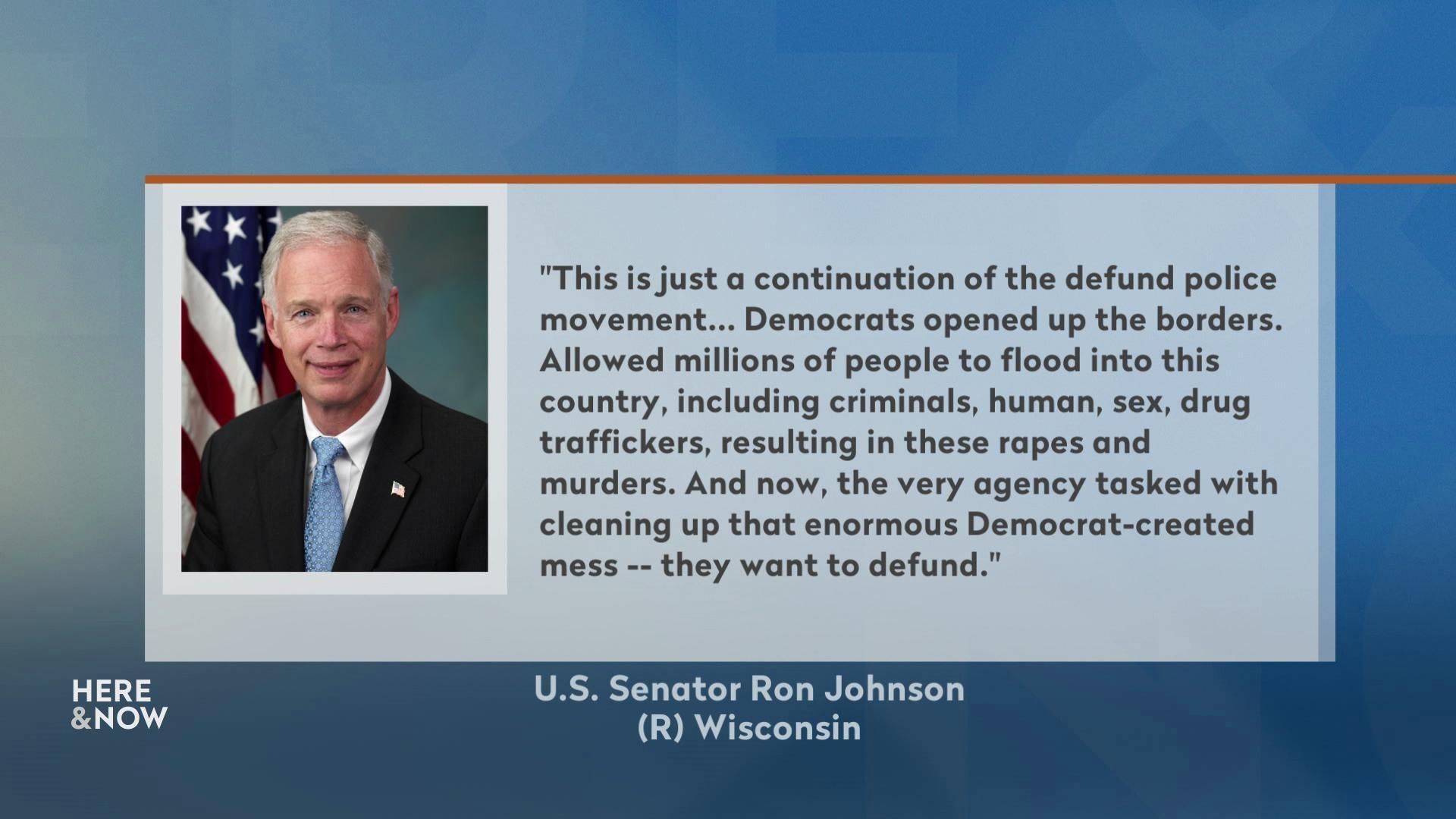
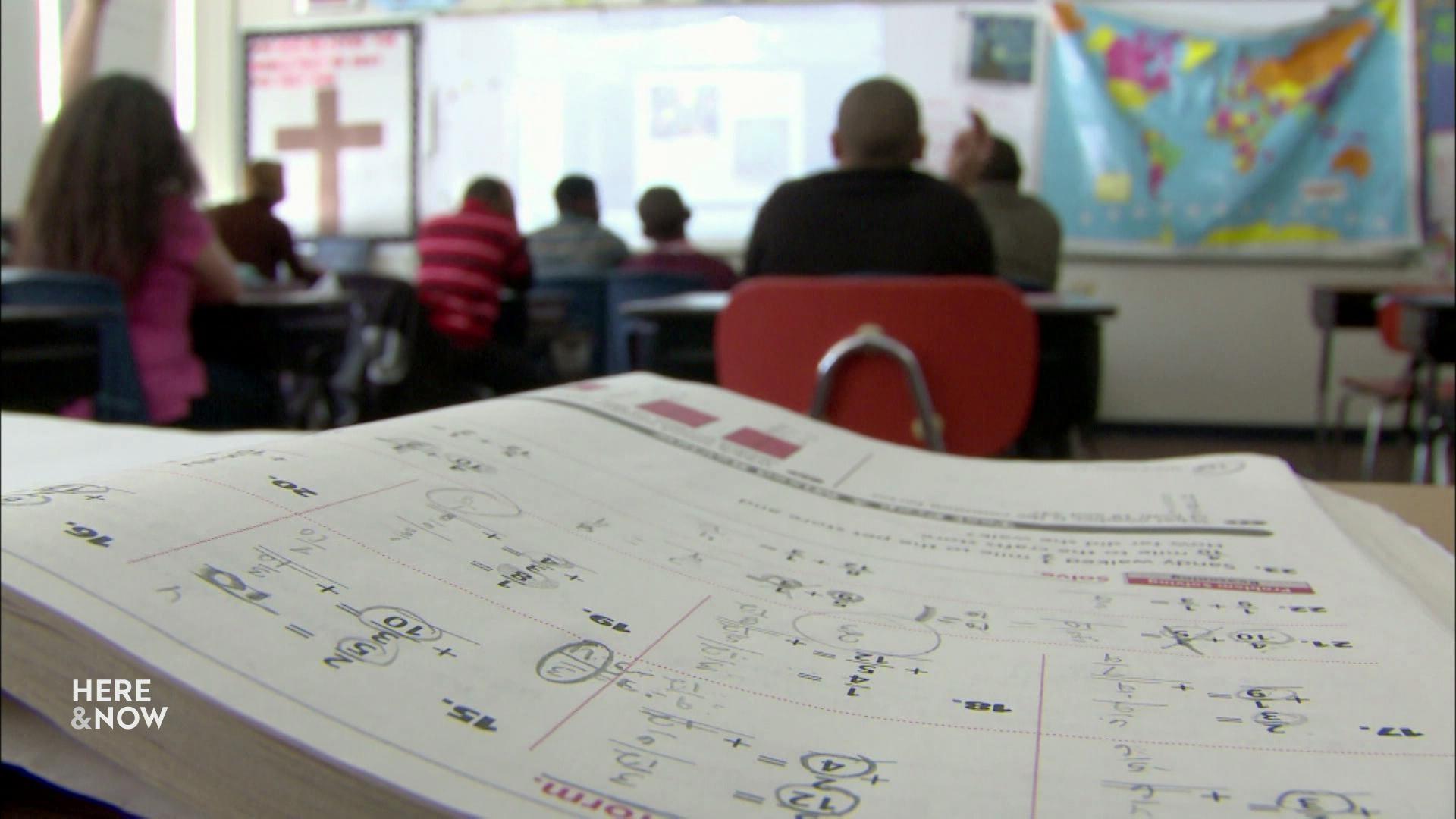
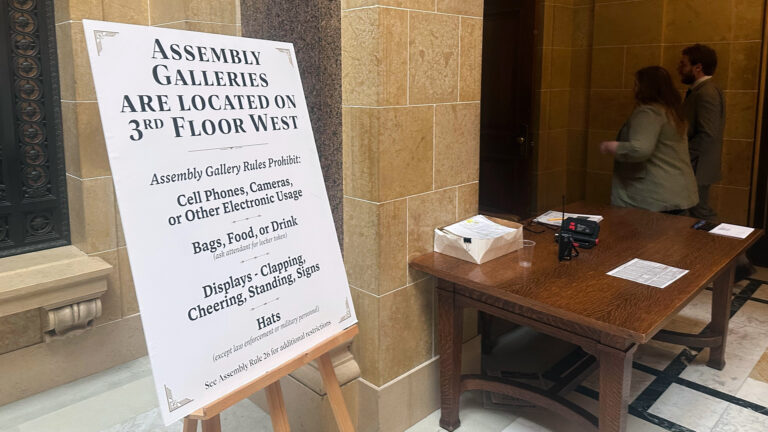
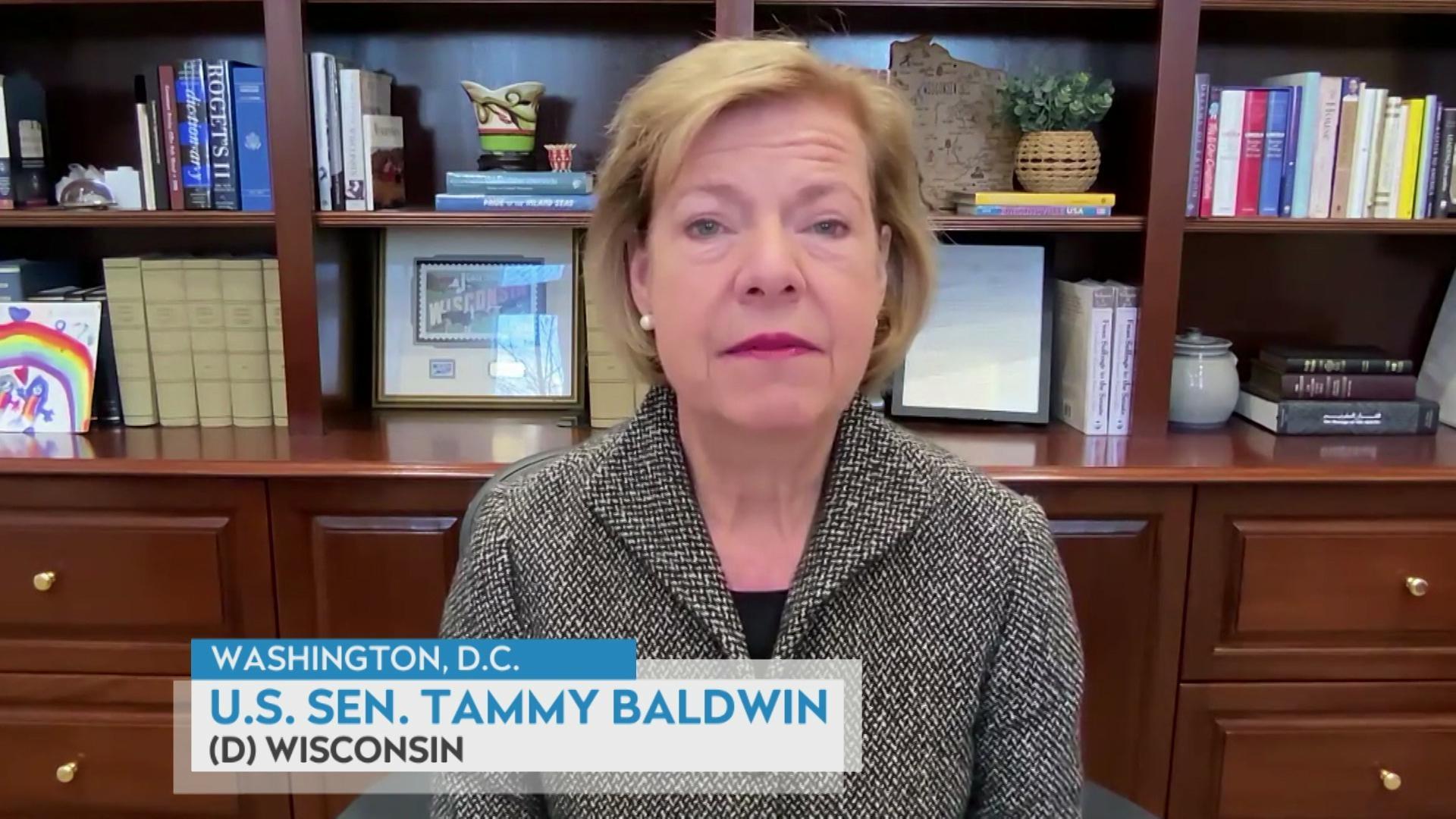
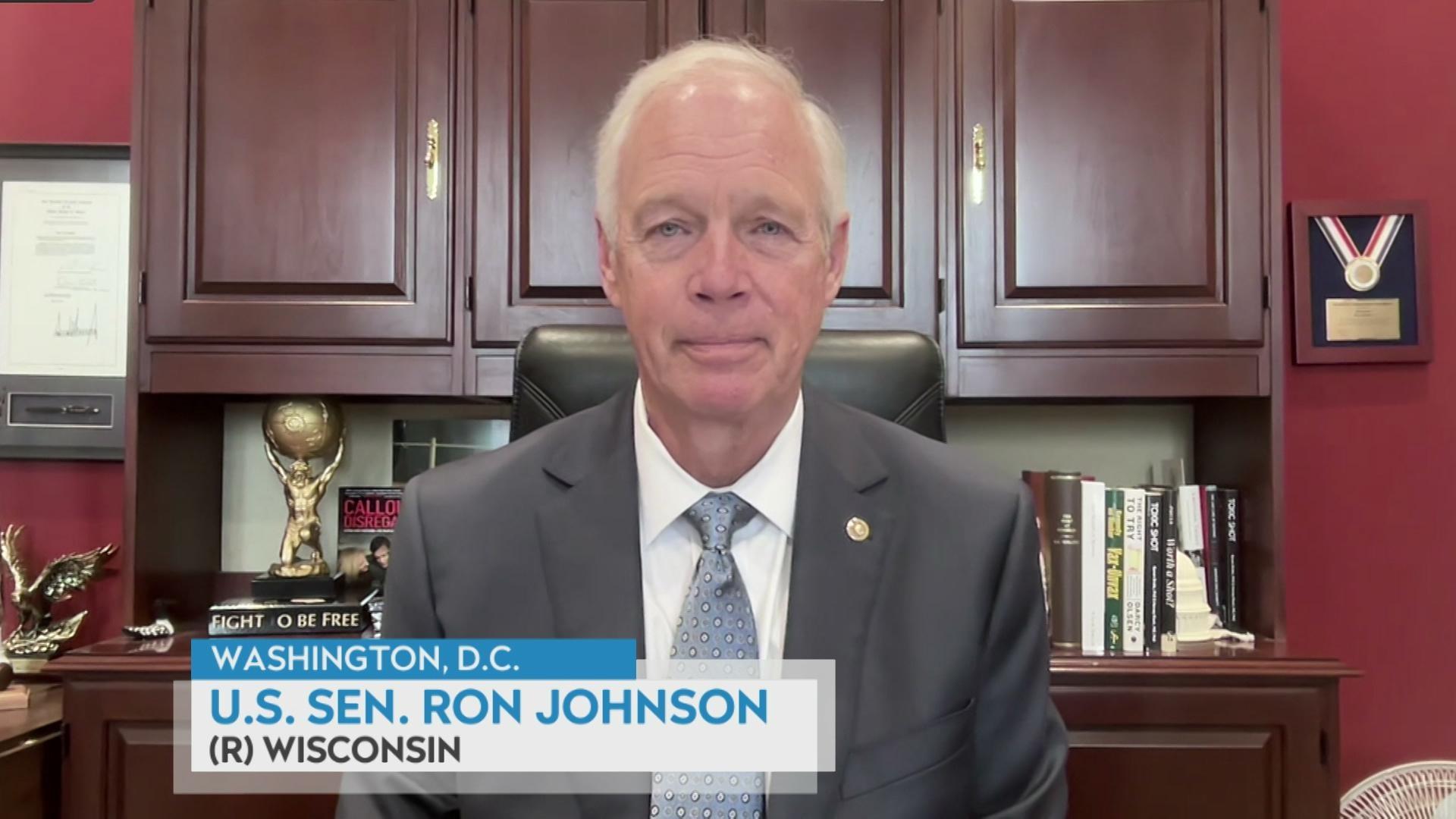

Follow Us